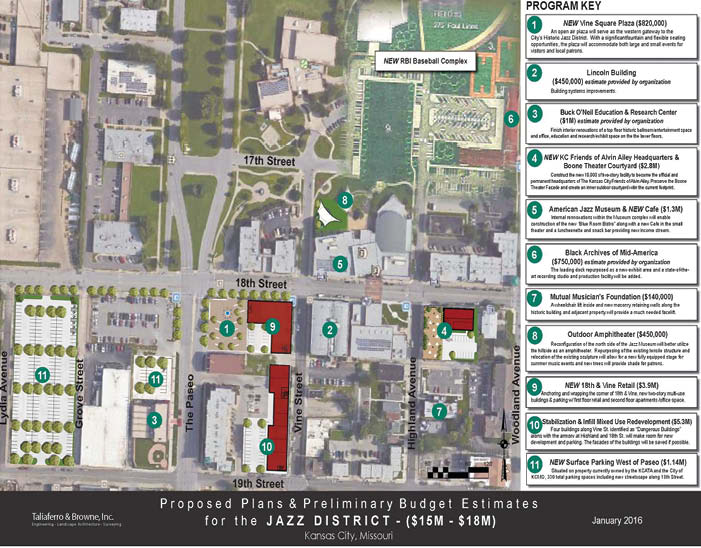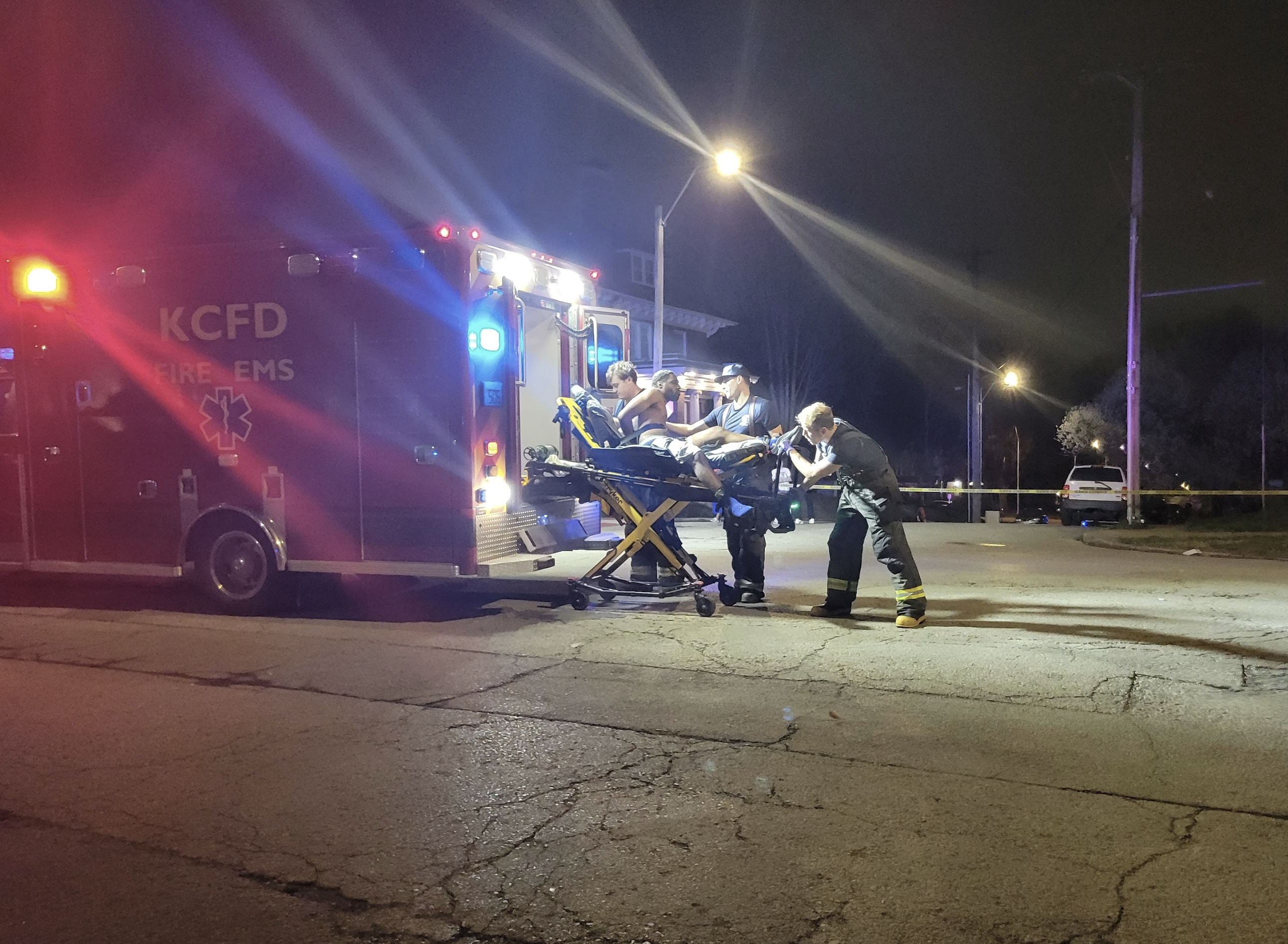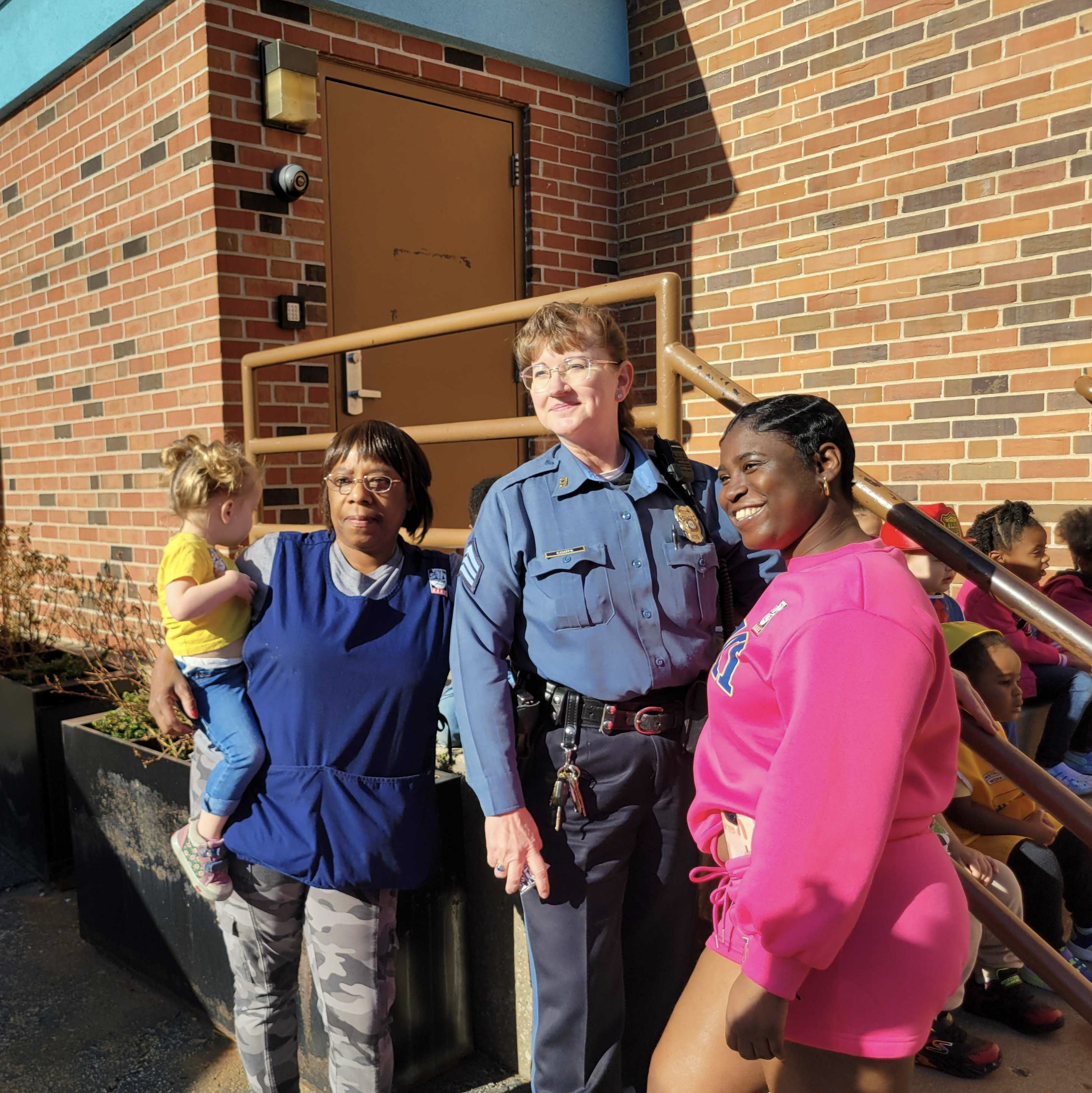
By Joe Jarosz
Northeast News
January 13, 2016
KANSAS CITY, Missouri — The 18th and Vine Jazz District isn’t usually the first option that comes to mind for Kansas Citians when thinking of entertainment options on a night out.
Councilman Jermaine Reed wants that to change.
Last Wednesday, during a joint meeting of the city’s Planning, Economic Development and Zoning Committee as well as the Finance Committee, Reed proposed a resolution that would allow City Manager Troy Schulte to develop a financing plan that would search for additional funds for the Historic 18th and Vine Jazz District. Along with the help of Congressman Emanuel Cleaver II, the proposed resolution would seek between $15 – $18 million, an increase from the originally estimated cost of $7 million.
There were roughly 50 people who attended the presentation, as well as nine out of 13 council members, during a three-hour discussion at Wednesday’s committee meeting. During Thursday’s City Council meeting, the council unanimously approved the resolution. Schulte now has 60 days to find financing options for the project.
“I don’t believe its reached its full potential and its important for us as a city to preserve this area,” Reed said. “It’s time to implement and revitalize.”
If funding is procured, the city would renovate and plan for new development in the Jazz District, including: $1.5 million for an open-air plaza and fountain at 18th Street and Paseo, $1.1 million for a new surface parking lot west of Paseo, $3.9 million worth of new retail buildings in place of an existing parking lot at the southwest corner of 18th and Vine, a new café and renovations for the Blue Room in the American Jazz Museum, $2 million worth of headquarters and performing space plus preservation of the Boone Theater facade at the Kansas City Alvin Ailey Dance Theater, and $1 million would be spent completing the Buck O’Neil Education and Research Center.
Finance Committee Chairman Scott Wagner asked for more information on the potential acquisition of three non-city-owned structures involved in the improvement plan — the historic Lincoln Building, the Paseo YMCA and the Mutual Musicians Foundation building. Unless they are acquired by the city, these three buildings would not be included in any development plan.
After explaining the details of the improvement plans, Leonard Graham, a registered professional engineer and co-owner and president of Taliaferro & Browne, Inc., told the committee that estimates are based on schematic designs and square footage prices, including acquisition prices for the three buildings. Wagner also asked the city to look into private investment. The city has spent roughly $70 million on the entertainment district in the past 25 years.
“My concern is we’re giving the impression the city is doing everything,” Wagner said during the committee meeting. Reed noted, however, that many of the entertainment options in the Jazz District are self-sufficient and any fundraising efforts conducting by these establishments will continue.
Before the vote, Scott Taylor, Chair of the Planning, Economic Development and Zoning Committee, said he believes this is a reasonable package and a good idea to do right now.
“This is so important to do because more needs to be done to showcase this city’s history,” Taylor said.
Cleaver, during his testimony in favor of the project, touted the popularity of the Jazz District, not just at home in Kansas City, but abroad, as well. He told a story about musicians Jerry Leiber and Mike Stoller writing the song “Kansas City” in 1952, before even visiting the city. Since then, the song has been rerecorded by hundreds of other artists, including The Beatles, twice by Little Richard and Marcus Mumford of Mumford and Sons. Because of that song, Cleaver noted Vine Street is one of the most popular and well know streets in the country, behind only Broadway in new York and Hollywood Boulevard in Los Angeles.
“This is a destination most cities would love to have,” Cleaver said.
Reed said he is committed to the continued revitalization of this historic entertainment cultural arts district.
“It is imperative that the city preserve its investment in 18th and Vine district as well as institute measures that would drive economic development and support business development in the district,” Reed said. “When people come to Kansas City, they are looking for jazz, baseball and barbecue. We want to showcase the 18th and Vine District and make it the true tourist destination that visitors come to see.”

















